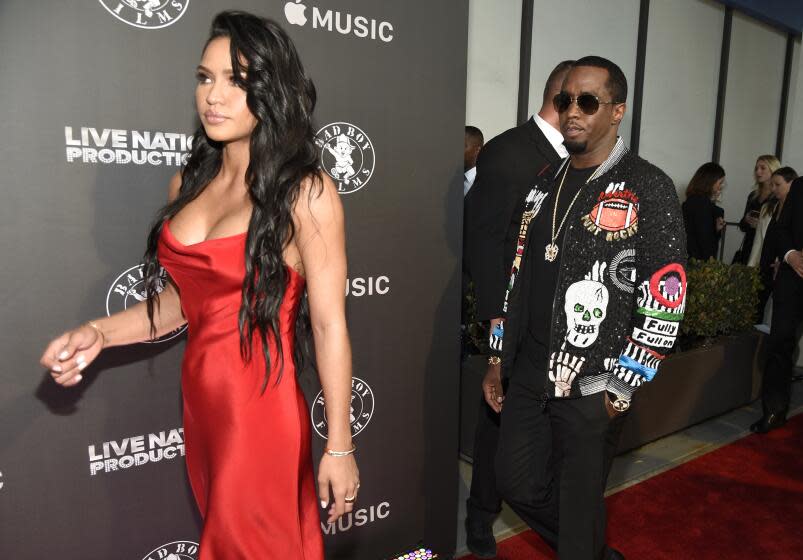Granderson: Cassie's lawsuit against Diddy keeps us talking about domestic violence

Domestic violence was a constant in my life growing up. Unfortunately, helpful conversations about it weren’t.
I’m sure I wasn’t the only one who was told as a child to “stay out of grown folks’ business.” And most adults also stuck to minding their own business when it came to abuse. The few words I did hear were mostly justifications — she made him angry, she was talking back.
I came from a community conditioned to silently accept her bruises — regardless of who the “her” was. Mothers and sisters. Girlfriends and wives. Daughters.
More than 40% of women have experienced some form of domestic violence in their lifetime, according to the Centers for Disease Control and Prevention. The Justice Department reported that more than 75% of murdered women are killed by someone they know — and more often than not that “someone” is an intimate partner or an ex.
Read more: Granderson: America's tragic war on LGBTQ+ people extends its collateral damage
And yet it feels risky to express concern for a loved one who might be in danger. We don’t want to step out of bounds. Which is one reason those stats could reach such heartbreaking extremes.
At least there are now laws across the nation making sexual violence against spouses illegal. They will only truly have power when people believe in them — and overcome the culture of silence.
Last week, the rapper Sean “Diddy” Combs was accused in a lawsuit filed by Casandra Ventura, his former partner, of rape and a “cycle of abuse” during their long relationship. And although the allegations in the case are horrible, the detail I can’t let go of involves the witnesses of the alleged abuse. The dynamic felt uncomfortably familiar.
Read more: Granderson: U.S. policy basically discourages having kids. Now our economy is paying the price
Diddy settled the suit 24 hours after it was filed. His lawyer pointed out that settling the lawsuit is not an admission of guilt.
Diddy has been in legal trouble for more than 25 years, including past allegations of domestic violence. And yet many in the industry just kept quiet, either intimidated by his power or unaware of their own.
Read more: Granderson: Can Americans have a not-racist conversation about border security?
Before this case, music executive Antonio Reid was accused of sexual assault earlier this month in a lawsuit, and KeKe Palmer asked for a restraining order against her ex. Palmer’s mother said she was concerned for her daughter’s life, and Palmer requested her ex attend a batterer intervention program. Last month, two women accused Tremaine Neverson, aka Trey Songz, of sexual assault. As with Diddy, whispers about domestic violence had followed him for years.
Back when I was in college and came home one Thanksgiving — the last Thanksgiving I would spend with my favorite aunt — she said she was a little sore when we hugged. We didn’t talk about it. We never did. Months later, I was told she was in the hospital. By the time I arrived, she was gone. She was taken, really, because the fatal brain damage had come at the hands of the man who claimed to love her.
Yes, this is personal.
Which is the point. It’s personal for so many, when more than 40% of American women experience domestic violence.
That’s a lot of mothers and daughters. Sisters and nieces. Aunts.
It’s also a lot of silence to be endured through the generations. However effective you think the #MeToo movement has been, one undeniable benefit has been the breaking of some of that silence — through high-profile court cases and even through new laws such as the one in New York that made it possible for Ventura to bring her lawsuit.
Too many of us grew up hearing “mind your own business,” but we know better now. Ventura, Palmer and countless other brave women are challenging the silence that allows domestic violence to persist.
This story originally appeared in Los Angeles Times.

